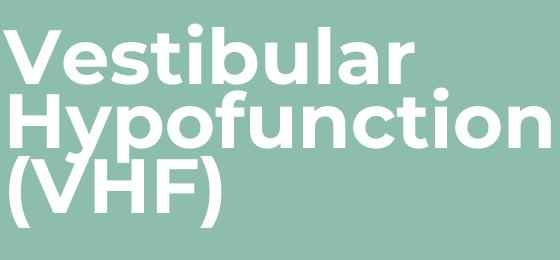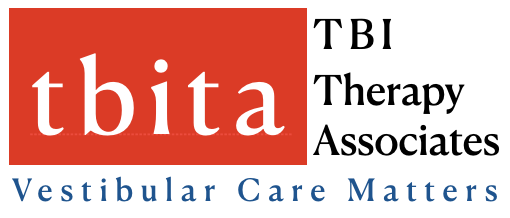Vestibular Hypofunction (VHF)

Post-traumatic vestibular Hypofunction refers to the reduced or impaired function of the vestibular system following a traumatic brain injury (TBI) or head trauma. This condition can manifest as either unilateral or bilateral, depending on whether one or both sides of the vestibular system are affected. The vestibular system, located in the inner ear, is crucial for maintaining balance, spatial orientation, and stabilising gaze during head movements. When damaged by trauma, it can lead to a range of symptoms and impairments in balance and coordination.
Common symptoms of post-traumatic vestibular hypofunction include:
- Dizziness or vertigo
- Imbalance or unsteadiness, especially during walking or standing
- Visual disturbances, such as blurriness or difficulty focusing
- Nausea or motion sickness
- Sensitivity to head movements or changes in position
- Difficulty with spatial orientation or navigating in space
Diagnosis: Diagnosing post-traumatic vestibular hypofunction typically involves a comprehensive evaluation by a vestibular specialists, such as a vestibular physiotherapist, which may involve:
- Medical History: Assessment of head trauma and related vestibular symptoms.
- Physical Examination: Includes tests of balance, gait, and coordination.
- Vestibular Function Tests: Such as the head thrust test, dynamic visual acuity test, and oscillopsia assessment.
Treatment aims to alleviate symptoms, improve balance and stability, and enhance overall functional mobility. Options may include:
- Vestibular Rehabilitation Therapy (VRT): A specialised form of physical therapy administered by a vestibular physiotherapist that includes exercises designed to promote adaptation, habituation, and compensation for vestibular deficits.
- Medications: While medications may be prescribed to alleviate symptoms like dizziness, nausea, or motion sickness, their long-term use should be avoided due to potential side effects such as hindering natural recovery and causing extrapyramidal symptoms.
Prognosis: The outlook for TBI patients with vestibular hypofunction is generally positive with appropriate rehabilitation, particularly when guided by a vestibular physiotherapist. However, prognosis depends on factors such as the severity of the TBI, the extent of vestibular damage, and individual patient characteristics. Early and consistent intervention, combined with a comprehensive rehabilitation program, offers the best chance for significant improvement and functional recovery. However, some patients may experience ongoing challenges requiring long-term management.
